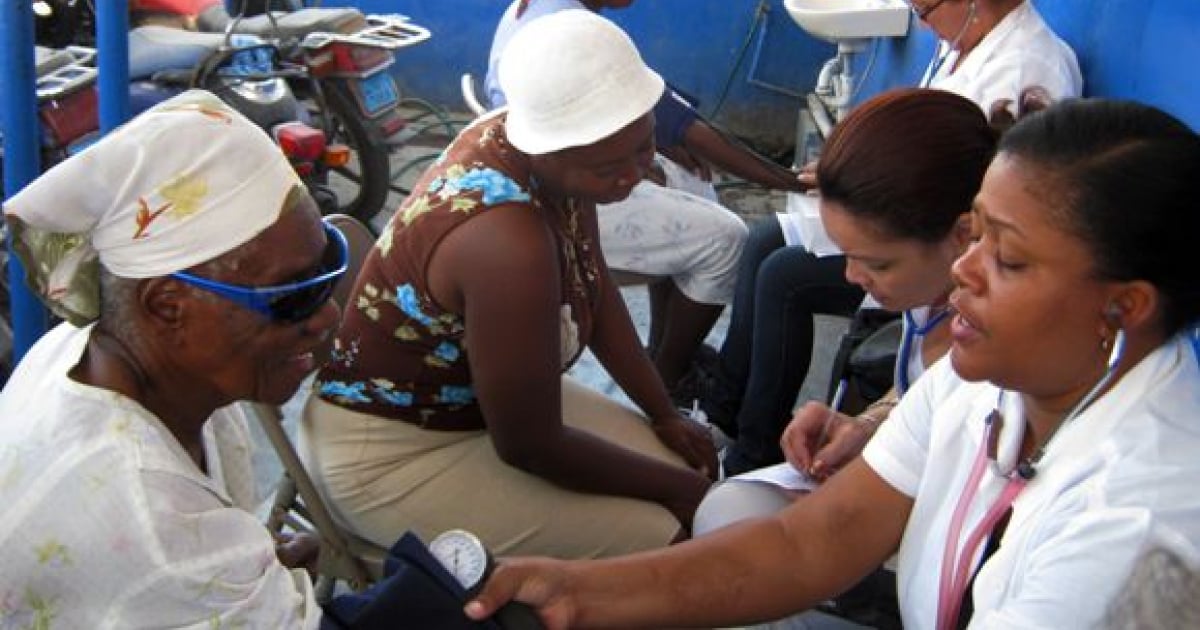The Cuban government retains the lion's share of payments made by the Bahamas for Cuban healthcare professionals deployed through a bilateral medical cooperation agreement. A report by the Archivo Cuba project, based on contracts obtained through unofficial channels, reveals that the Havana regime holds back between 83.9% and 91.6% of these payments, leaving the workers with a mere monthly stipend.
The agreement between the Bahamas and the Comercializadora de Servicios Médicos Cubanos (CSMC), an entity fully controlled by the Cuban regime, specifies monthly payments of up to $12,000 for a "medical specialist advisor," with only $1,200 directly reaching the Cuban professional. The remainder is funneled into the government's coffers. For other positions, like health technicians or computer engineers, of the $5,000 monthly salary agreed upon, only $990 is allocated directly to the worker as a stipend.
Beyond salaries, the Bahamas covers housing, transportation, medical insurance, English courses, and administrative expenses, significantly increasing the cost per worker above the local average salary. According to the report, over 100 Cubans are currently employed within the Bahamian health system, working in hospitals such as the Princess Margaret and the Rand Memorial, among other institutions. This so-called medical mission includes technicians, nurses, physiotherapists, and even biomedical engineers, many of whom are reported to perform low-skilled tasks.
Restrictive Conditions and Allegations of Abuse
The contracts also include clauses preventing workers from accepting independent contracts, requiring them to maintain confidentiality, and allowing CSMC to impose disciplinary actions from Cuba. The report labels these conditions as a form of forced labor under the guise of a "humanitarian mission."
Former collaborators have shared testimonies of living in precarious conditions, earning low wages, and being unable to save enough money. Some are even in the Bahamas without valid work permits, in violation of local immigration laws. The report further alleges that workers are compelled to take part in anti-U.S. embargo demonstrations organized by the Cuban embassy, highlighting the political exploitation of these brigades.
While the Cuban regime rakes in over $11 million annually from this program, the workers receive only a fraction of the payment. Moreover, according to the report, they are subjected to a system that infringes on human rights, international labor standards, and Bahamian laws.
International Scrutiny and Official Responses
Despite these irregularities, in December 2024, the Bahamas' Minister of Health and Wellness, Dr. Michael Darville, along with the Director of the Public Hospitals Authority, Dr. Aubynette Rolle, reaffirmed the "positive" nature of the agreement with the Cuban regime and expressed interest in expanding bilateral health cooperation.
For years, Cuban medical cooperation has been under international scrutiny due to the coercive conditions imposed on health professionals sent abroad. Recently, Cuba's Minister of Public Health, José Ángel Portal Miranda, admitted that medical collaborators' passports were withheld by brigade leaders for years as a "preventive measure" against desertions. Although he claimed this practice has decreased, his statements confirmed persistent allegations regarding the lack of freedom of movement for these workers.
Just days earlier, a report by the U.S. Department of State accused the Cuban regime of earning over $4.9 billion annually from exporting medical services, retaining a significant portion of the professionals' salaries. This report characterized the practice as a form of forced labor and human trafficking, emphasizing the government's imposition of abusive working conditions, including the prohibition of independent contracts and the obligation to participate in political events.
In March, Senator Marco Rubio condemned Cuban medical missions, describing them as an "atrocious practice" for operating under exploitative conditions. Rubio stressed the need to evaluate each medical agreement in the Caribbean individually to determine their legitimacy and respect for human rights.
Key Questions About Cuban Medical Missions in the Bahamas
How much of the payment do Cuban healthcare workers actually receive in the Bahamas?
Cuban healthcare workers in the Bahamas receive only a fraction of the payment, with a stipend that ranges from $990 to $1,200, while the Cuban government retains the majority of the funds.
What additional costs does the Bahamas cover for Cuban medical workers?
The Bahamas covers housing, transportation, medical insurance, English courses, and administrative expenses for Cuban medical workers, increasing the overall cost beyond the average local salary.
Why has Cuban medical cooperation been under international scrutiny?
Cuban medical cooperation faces international scrutiny due to the coercive conditions imposed on health professionals, including retention of passports, forced political participation, and minimal pay.
